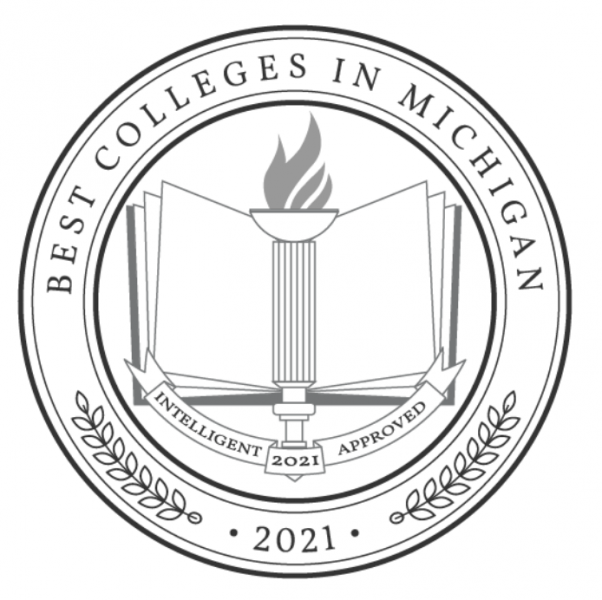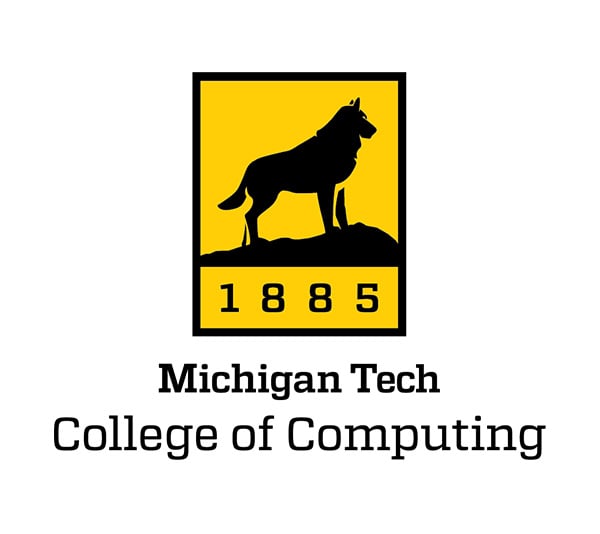by Husky Innovate
For the 11th year running, Central Michigan University and Michigan Tech collaborated to offer Tech students a chance to compete at CMU’s New Venture Competition. 2021 marked the second year the pitch competition was held online as the New Venture Online Competition (NVOC).
Despite the challenges of a pandemic and a virtual platform, our students persevered, honed their pitches and won top prizes. This year’s NVOC winners were also winners at the 2021 Bob Mark Business Model Pitch Competition held at Tech in January. All of their hard work and effort paid off!
Congratulations to this year’s MTU winners:
- In the 2020-track 10-minute pitch category, Team Focus with Ranit Karmakar won the Best Overall Venture Award for $25,000. Watch Karmakar’s pitch.
- In the two-minute pitch category, Team The Fitting Room with Jordan Craven won third place for $1,000. Watch Craven’s pitch.
- Team Recirculate with Hunter Malinowski won an honorable mention award for $750. Watch Malinowski’s pitch.
Read more in the NVOC 2021 Booklet.
by Graduate Student Government
This year’s Graduate Research Colloquium organized by the Graduate Student Government was hosted virtually due to COVID restrictions. There were in total 48 presentations — 17 poster presenters and 31 oral presenters.
Poster presentations took place in a pre-recorded video style and the oral sessions were hosted live via Zoom. You can watch all the poster videos and recordings for the oral sessions here. Each presentation was scored by two judges from the same field of research.
Participants were able to gain valuable feedback from these judges before presenting their research at an actual conference. It was stiff competition amongst all presenters. Following are the winners for each of these sessions.
Of the many presentations were the following by two graduate students affiliated with the College of Computing.
Simulating the Spread of Infectious Diseases
Meara Pellar-Kosbar, Data Science
This simulation is designed to show how a fictional viral illness could spread among people in a virtual room. Over the course of the virtual simulation, a number of automatic simulated people called subjects will move about an adjustable virtual grid. During this time, subjects will come into contact with each other and with item cells in the virtual room. Subjects will be exposed to this fictional virus via contact with other subjects, items, and via the air when within a certain distance of a contagious subject. The viral counts of each subject will be tracked and shown as the simulation runs, showing how the actions of the subjects’ affects their viral counts.
Cultural Competence Effects of Repeated Implicit Bias Training
Karen Colbert, Social Sciences
Karen Colbert is a PhD student in the Computational Sciences and Engineering department.
Abstract: Diversity training literature suggests that mandatory and recurrent sessions should maximize training efficacy, but research has primarily focused on single, brief training sessions that are often voluntary. Michigan Tech is one of few universities to implement required and repeated diversity training for all faculty who serve on search, tenure, and promotion committees. The goal of this study is to evaluate the training’s effectiveness, as well as to fill the gap in research on mandatory recurring diversity training. To do this, we anonymously surveyed faculty members on their knowledge, attitudes, and skills related to content from the Diversity Literacy program and scored responses to create a single composite score for each participant. We hypothesized that composite Cultural Competency Score (CCS) would be higher for faculty who 1) have taken more refresher trainings, and 2) completed training more recently. This study included 130 total respondents (large sample), 69 of whom provided their Diversity Literacy completion information anonymously through Human Resources (small sample). Composite CCS did not differ significantly by frequency of training, H(2)=3.78, p=.151. CCS did differ significantly by years since last training, F(2,63)=4.436, p=.016. Results from both large and small groups showed no statistical significant relationship between CCS and faculty committee service. CCS was negatively correlated with years employed at Tech in both the large (r=-0.363, p=0.002) and small (r = -0.258, p=0.01) samples. This relationship between low CCS and longer employment at Tech may additionally be related to the Diversity Literacy program’s implementation in 2010. Qualitative responses were also collected regarding training material that faculty found most memorable (N=102) and most confident to put into practice (N=93).

Several Michigan Tech College of Computing degree programs have been ranked among the best in the nation by Intelligent.com. In addition, the research guide ranked the University number three among all colleges in Michigan.
Intelligent.com looked at nearly 2,300 accredited colleges and universities nationwide making evaluations based on curriculum quality, graduation rate, reputation and post-graduate employment. Programs were evaluated on a scale of 0 to 100 with Michigan Tech making it to the final list for 12 separate degree programs.

The four College of Computing programs and their national ranking as rated by Intelligent.com are:
Additional Michigan Tech degree programs included in the ranking are:
- Master’s in Civil Engineering Degree Programs — #4
- Marketing Degree Programs — #5
- Sports Management Degree Programs — #8
- Sports Medicine Degree Programs — #20
- Master’s in Mechanical Engineering Degree Programs — #22
- Master’s in Electrical Engineering Degree Programs — #25
- Master’s in Science Education Degree Programs — #26
- Master’s in K-12 Education Degree Programs — #43

We are looking forward to celebrating the accomplishments of our graduates at a Class of 2020 virtual Convocation program on Friday, December 18, 2020, at 3:30 p.m. EST.
The celebration will include special well-wishes from CC faculty and staff, and many will be sporting their graduation regalia. It is our privilege to welcome Ms. Dianne Marsh, 86, ’92, as our Convocation speaker. Dianne is Director of Device and Content Security for Netflix, and a member of the new College of Computing External Advisory Board.
We may be spread across the country and world this December, but we can still celebrate with some style. We look forward to sharing our best wishes with the Class of 2020 and wishing them continued success as they embark on the next phase of their lives!
This December, 40 students are expected to graduate with College of Computing degrees, joining 92 additional Class of 2020 PhD, MS, and BS alumni.

Dianne Marsh ’86, ’92 is Director of Device and Content Security for Netflix. Her team is responsible for securing the Netflix streaming client ecosystem and advancing the platform security of Netflix-enabled devices. Dianne has a BS (’86) and MS (’92) in Computer Science from Michigan Tech.
Visit the Class of 2020 Webpage
Congratulations Graduates. We’re proud of you.
by Electrical and Computer Engineering
Computer Engineering doctoral candidate Yongyu Wang will defend at 10 a.m. Tuesday (Dec 1) via Zoom.
The title of his presentation is “High-Performance Spectral Methods for Graph-Based Machine Learning.” Co-advisors are Chee-Wooi Ten (ECE) and Zhuo Feng (ECE).
Chee-wooi Ten is a researcher with the ICC’s Cyber-Physical Systems group.